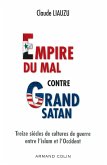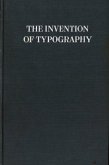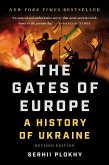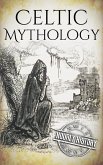“To the modern conscience in time of peace, war is a monstrosity complicated by an absurdity; hence no one can believe himself to have had a hand in bringing it about.”
Satan, the Waster, published in 1920, is an essay on political anthropology of the Great War in a radically pacifist and radically rationalist perspective: but although it is a militant book, it is neither a sermon nor a book of good intentions; it is a ruthless analysis of what happened, built on the basis of the original vision of a writer with a unique personality. The book consists of a symbolic comedy focused on the traditional metaphor of the devil and a collection of essays that clarify its infinite meanings and suggestions. It is unique in its kind, a masterpiece of writing and intellectual clarity, and was written in an intentionally rough way to force the readers to think overcoming the instinctive solidarity with their country at war, an attitude which was dominant at that time, and which still remains today.
The First World War is the product of a system that has lost its ability to manage its own complexity, and any traditional explanation of the phenomenon is inadequate. So Satan, the Waster had this aim: to be the beginning of the search for a key to this unacceptable event, without ever giving any priority status to traditional explanations and rationalizations. We are faced with a phenomenon that requires completely unprejudiced thought, and consequently radical innovation in the way of expressing it.
The attentive readers will be enriched by this masterpiece, which is a kind of atlas of the (dirty) conscience of Europe of the Great War, with an infinite number of suggestions for their own reflection, and will gain a radically changed vision of the whole phenomenon.
Satan, the Waster, published in 1920, is an essay on political anthropology of the Great War in a radically pacifist and radically rationalist perspective: but although it is a militant book, it is neither a sermon nor a book of good intentions; it is a ruthless analysis of what happened, built on the basis of the original vision of a writer with a unique personality. The book consists of a symbolic comedy focused on the traditional metaphor of the devil and a collection of essays that clarify its infinite meanings and suggestions. It is unique in its kind, a masterpiece of writing and intellectual clarity, and was written in an intentionally rough way to force the readers to think overcoming the instinctive solidarity with their country at war, an attitude which was dominant at that time, and which still remains today.
The First World War is the product of a system that has lost its ability to manage its own complexity, and any traditional explanation of the phenomenon is inadequate. So Satan, the Waster had this aim: to be the beginning of the search for a key to this unacceptable event, without ever giving any priority status to traditional explanations and rationalizations. We are faced with a phenomenon that requires completely unprejudiced thought, and consequently radical innovation in the way of expressing it.
The attentive readers will be enriched by this masterpiece, which is a kind of atlas of the (dirty) conscience of Europe of the Great War, with an infinite number of suggestions for their own reflection, and will gain a radically changed vision of the whole phenomenon.









